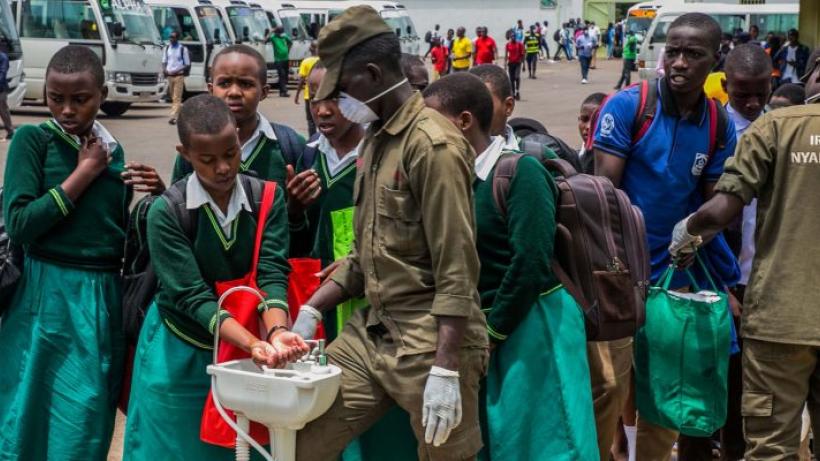
Low income countries need different lockdowns to prevent severe deprivation and hunger, say top economists and health experts
In low income countries, containment strategies to stop the spread of COVID-19 need to ensure people can still earn a living and access food, warn pre-eminent economists and health experts convened by the International Growth Centre (IGC).
Low income countries, which have moved fast to introduce lockdowns similar to those in developed countries, risk causing acute hunger and deprivation. For millions of households living hand to mouth, the resulting collapse in earnings can mean the difference between life and death. Governments should focus on ‘smart’ containment strategies informed by the local context and local data. These strategies should promote physical distancing, where feasible, while ensuring continued access to food, critical healthcare, and other essential items, and the continued functioning of related supply chains.
Coordinated by LSE Professor Jonathan Leape, who is also Executive Director of the IGC, the new policy guidance provides specific and practical advice to developing country policymakers. The guidance was developed by a high-level IGC COVID-19 advisory panel and is endorsed by 37 renowned academics in economics and health.
While local conditions may, in some cases, require an initial period of broad lockdown – as ‘shock therapy’ to achieve the change in behaviour necessary to defeat COVID-19 – this should be limited to a short period of time to ensure people can still earn a living.
A simulation in forthcoming IGC research[i] indicates that after an eight-week lockdown, 180 million (or 21% of the population) in sub-Saharan Africa would no longer be able to afford their usual food consumption. Countries that cannot afford the broad safety nets introduced in richer countries could face mass hunger.
“Blanket lockdowns risk pushing millions of people into acute hunger. Smart containment strategies need to allow people to continue earning a living so they can buy food and support their families,” said Prof Leape.
Academics backing the policy guidance include Professor Michael Kremer (Harvard), winner of the 2019 Nobel Prize in Economics; Professor Sir Paul Collier (Oxford); Professor Andrès Velasco (LSE), former Finance Minister of Chile (2006-10); and Professor Stephen Luby (Stanford).
Access the policy guidance and other COVID-19 resources for developing country policymakers on the IGC’s website: https://www.theigc.org/covid-19/
Contact information:
Emilie Yam, Head of Communications, IGC
Email: [email protected] Phone: +44 (0)7804 906 778
About the IGC
The International Growth Centre (IGC) aims to promote sustainable growth in developing countries by providing demand-led policy advice based on frontier research. The IGC directs a global network of world-leading researchers and in-country teams in Africa and South Asia and works closely with partner governments to generate high-quality research and policy advice on key growth challenges. Based at LSE and in partnership with the University of Oxford, the IGC is majority funded by the UK Department for International Development (DFID).
[i] Teachout, M. and Zipfel, C. (2020). The economic impact of COVID-19 lockdowns in sub-Saharan Africa. IGC Policy Brief (forthcoming).

